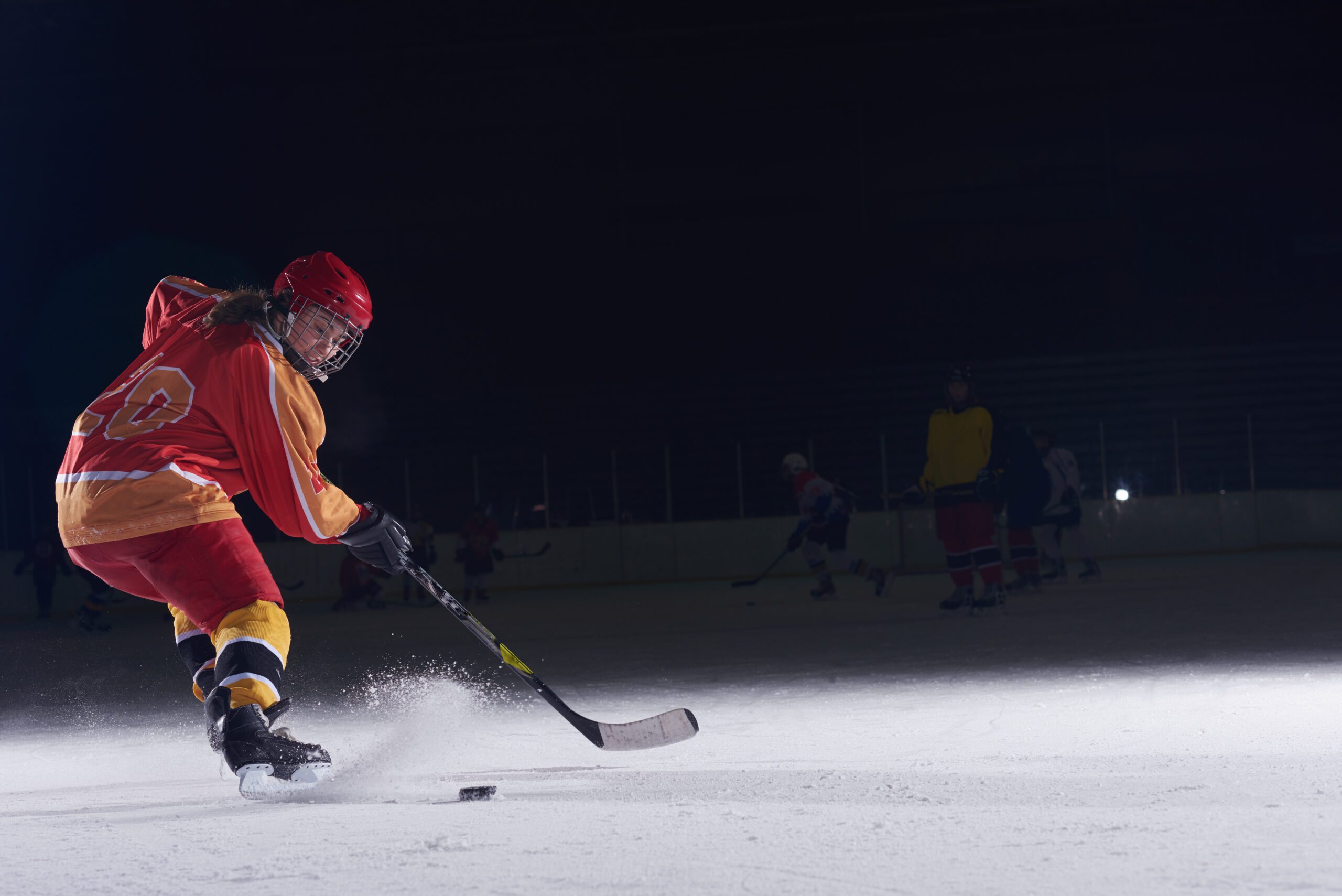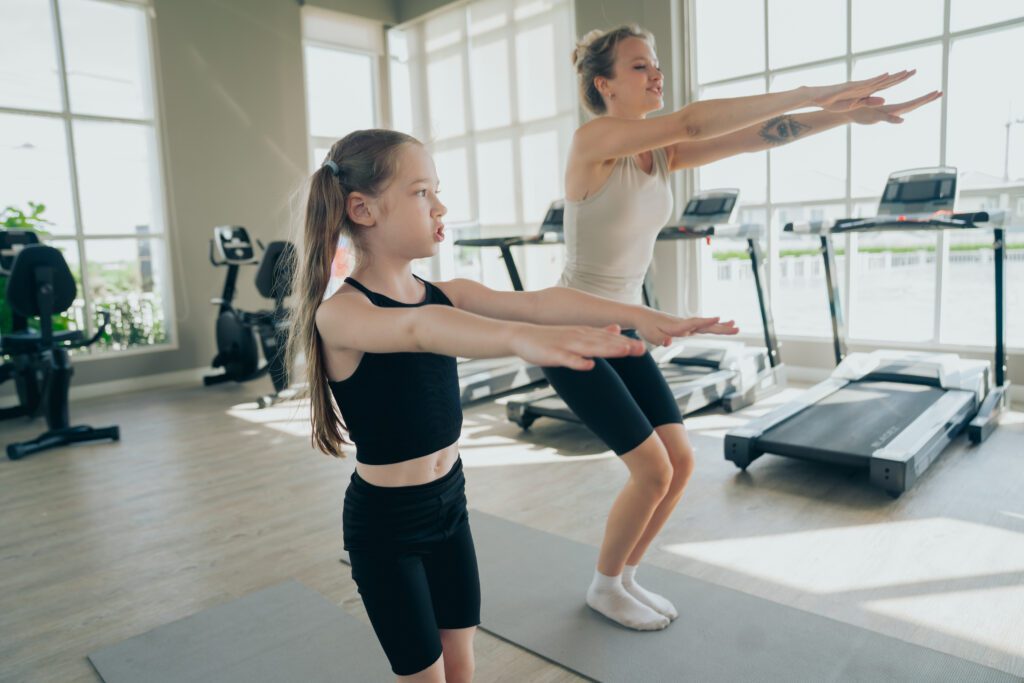
With the 2026 Winter Olympics less than a year away, athletes are deep in their preparation, setting their sights on representing Team Canada. For veteran athletes like freestyle skier Cassie Sharpe and hockey forward Natalie Spooner, this Olympic cycle looks different as both became mothers since medalling at the 2022 Games.
The media has been quick to celebrate both Sharpe’s and Spooner’s return to elite competition as mothers, reflecting a cultural shift in the pursuit and attainment of athletic excellence once athletes become mothers. But these stories also highlight athlete mothers’ complicated journeys in sport.
To better understand these experiences, our research examines the recurring themes across media coverage of elite athlete mothers. In our previous research on media surrounding the 2020 and 2024 Olympic Games, we found that that media often portrayed athlete mothers as resisting stereotypes that post-partum bodies are weak, and/or super moms who do it all on their own. We also noted a growing shift in in athlete mothers leveraging the media to expose a motherhood penalty in sport, which is the discrimination (like losing a spot due to pregnancy) and sexism (like lack of facilities and resources) they faced as a result of their new motherhood status.
This article draws on findings from our research of media stories around Canadian veteran athlete mothers. We define this group as athletes ages 32 to 41 with multiple Olympic appearances. By understanding the barriers veteran athlete mothers face, those working in sport can better support their return and continued participation in high-performance sport.
Second chances and career ‘redemption’
Our study of media representations of Canadian Olympic athlete mothers, such as Melissa Bishop-Nriagu, Catherine Pendrel, Malindi Elmore and Danielle Lawrie, found that media stories often framed their comebacks as opportunities for second chances. Media coverage highlighted themes of personal or career redemption and returning physically and mentally stronger. While these stories drew on the athlete’s own words during interviews, the media framed their stories in ways that portrayed their identities as athlete-mothers as sources of new perspective and greater ability to handle the pressures of elite sport.
Our findings also showed stories of athlete mothers navigating the pressures of “good motherhood.” Good motherhood is a cultural belief that mothers should always put children above career and sport training to fulfill their duties as “good mothers.” Good motherhood forces some women to choose between motherhood and sport or experience more pressures. Media stories highlighted that athletes experienced “mom-guilt” as they trained for the Olympics. For example, one article in our review described Bishop-Nriagu as admitting to ‘feeling a little sad about being away from her daughter, wondering if it’s all worth it.’
Our findings from these media stories highlighted that this emotional labour was reduced by support from partners, family members, teammates and coaches, as reflected in media discussions with athletes on the importance of support systems.
Role models
Another dominant media portrayal identified in our research on ‘the motherhood penalty in sport’ was athlete mothers as role models who carve new pathways for future generations of women in sport. Athlete mothers were portrayed in stories as paying it forward through advocating for maternal rights, or by showing that motherhood does not end sport careers or reduce performance. This advocacy and push for maternity rights is linked to the lack of support and resources athlete mothers experience. Athletes like team Canada’s basketball player Kim Gaucher and Canadian boxer Mandy Bujold exemplify this by using the media to amplify their battles for maternity rights.
Bujold won a legal battle against the International Olympic Committee (IOC), leading to a change in Olympic qualification criteria to accommodate women who were pregnant or postpartum during the retroactively chosen qualification period. Similarly, Gaucher pushed for the IOC to allow nursing mothers to bring their children to the Games (a restriction in place during the pandemic) and succeeded in securing this change. Both went on to represent Canada at the Tokyo Games.
Coming back stronger and wiser
Media stories explored in our research were also shown to portray veteran athlete postpartum bodies as underestimated but also coming back stronger and wiser. These stories celebrated ‘mom strength,’ ‘mental strength,’ perspective gained from motherhood, and being seasoned competitors. These media stories also conveyed that athletes expressed concerns, hesitation, and surprise around their postpartum performances. For instance, despite already being Olympians, Pendrel and Elmore shared with the media that they did not expect to return to Olympic-level competition. This highlighted the uncertainty and challenges they faced in their postpartum athletic journeys.
While athlete mothers discussed adopting a flexible mindset that allowed them to balance motherhood and career tensions, the lingering doubt about their physical capabilities shown in these media stories reveals risks of missing career milestones and opportunities. This uncertainty around performance suggests a lack of sport science knowledge or resources for pregnant and postpartum athlete mothers. Some athletes also mistrust the information if/when it is offered. Due to these motherhood penalties, there remains a need for social and structural resources to break down barriers and not hold athletes responsible to navigate motherhood and sport careers on their own.
How the sport system can take action
Our research on media stories reveal progress for elite athlete mothers, particularly in showcasing their continued sport careers. Our findings also highlight barriers and persistent beliefs about sport and motherhood. These insights allow us to suggest some recommendations for sport organizations:
- Portraying family as a source of agency and growth: Veteran athlete mothers expressed positive impacts of their athlete-mother identity. Their experiences align with recent calls to develop a person-first Canadian sport system that values athletes beyond performance. Veteran athlete mothers should be supported in their pursuit of long, successful careers, not underestimated. Those working with these athletes can destigmatize motherhood by encouraging their continued athletic careers through a holistic, person-first approach

- Creating support systems: Many athletes delay or forgo motherhood due to uncertainty about post-pregnancy performance or the ability to balance motherhood and sport career demands (for example, training time, travel). This is partly why athletes may become mothers as veteran athletes. Sport organizations should proactively recruit sport science experts to ensure current athletes are aware of support available for those planning a family and/or returning as athlete mothers, as well as provide information on available external support from athletes, such as the MOMentum Peer-to-Peer Network.
- Media Stories as Learning Opportunities: Our research shows that media stories can raise awareness, resist myths, change the status quo, but they can also reinforce myths. Sport organizations might consider using their media platforms to highlight veteran athlete mothers’ stories to show realities, struggles, and their achievements. We encourage partnering with athlete mothers to share their authentic stories and also include diverse experiences such as LGBTQ+ athlete mothers, those with a disability, and single parents.